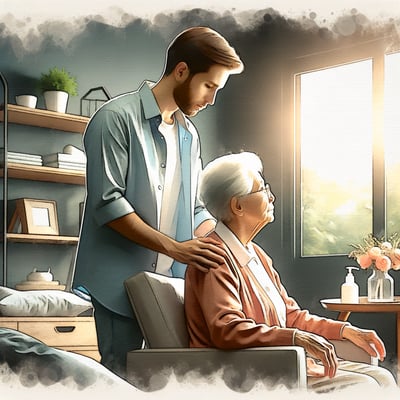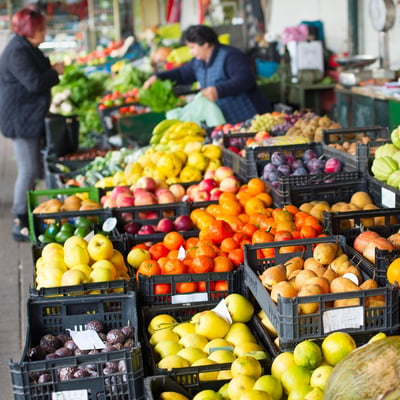1
00:00:03,236 –> 00:00:06,966
Gaspar: Amanhã queres ir jogar basquetebol comigo e com os meus amigos?
{{Gaspar: Do you want to play basketball with me and my friends tomorrow?}}
2
00:00:07,549 –> 00:00:11,414
Luísa: Eu vou à praia com o Ricardo, mas podes vir connosco se quiseres.
{{Luísa: I’m going to the beach with Ricardo, but you can come with us if you want.}}
3
00:00:11,684 –> 00:00:12,941
Gaspar: Vocês não se importam?
{{Gaspar: You don’t mind?}}
4
00:00:13,367 –> 00:00:15,797
Luísa: Claro que não. Vai ser divertido!
{{Luísa: Of course not. It’ll be fun!}}
5
00:00:16,209 –> 00:00:20,266
Gaspar: Não vejo o Ricardo há muito tempo. Vai ser bom estar com ele novamente.
{{Gaspar: I haven’t seen Ricardo in a long time. It’ll be good to be with him again.}}
6
00:00:20,721 –> 00:00:24,830
Luísa: Ele também vai gostar de estar contigo. Ele fala em ti muitas vezes.
{{Luísa: He’ll also like to be with you. He talks about you often.}}
7
00:00:25,346 –> 00:00:27,663
Gaspar: Temos muitas histórias para contar!
{{Gaspar: We have many stories to tell!}}
8
00:00:28,109 –> 00:00:29,793
Luísa: Absolutamente hilariantes!
{{Luísa: Absolutely hilarious!}}
9
00:00:30,290 –> 00:00:32,399
Gaspar: É sempre muito divertido estar convosco.
{{Gaspar: It’s always a lot of fun to be with you.}}
10
00:00:32,976 –> 00:00:35,121
Luísa: Nós também nos divertimos muito contigo.
{{Luísa: We also have a lot of fun with you.}}
11
00:00:35,616 –> 00:00:38,466
Gaspar: Então está combinado. Não se esqueçam de mim!
{{Gaspar: So it’s agreed. Don’t forget about me!}}
12
00:00:38,844 –> 00:00:43,590
Luísa: Claro que não. Não vamos sem ti. Aliás, nós apanhamos-te em casa.
{{Luísa: Of course not. We won’t go without you. In fact, we’ll pick you up at home.}}
13
00:00:43,910 –> 00:00:49,231
Gaspar: Perfeito! Posso dizer aos meus amigos que vamos jogar basquetebol no próximo fim de semana?
{{Gaspar: Perfect! Can I tell my friends that we are going to play basketball next weekend?}}
14
00:00:49,551 –> 00:00:52,769
Luísa: Sim. Também vai ser divertido estar novamente com eles.
{{Luísa: Yes. It will also be fun to be with them again.}}
15
00:00:53,352 –> 00:00:55,006
Gaspar: Eles também gostam muito de ti.
{{Gaspar: They really like you too.}}
16
00:00:55,341 –> 00:00:57,053
Luísa: Posso dizer ao Ricardo para ir?
{{Luísa: Can I tell Ricardo to go?}}
17
00:00:57,465 –> 00:00:58,211
Gaspar: Claro que sim.
{{Gaspar: Of course.}}
18
00:00:58,659 –> 00:00:59,298
Luísa: Que bom!
{{Luísa: Oh good!}}
19
00:00:59,653 –> 00:01:01,116
Gaspar: Estou mesmo entusiasmado!
{{Gaspar: I’m really excited!}}
20
00:01:01,458 –> 00:01:05,586
Luísa: Vai ser bom fazer exercício para perder este peso extra.
{{Luísa: It will be good to exercise to lose this extra weight.}}
21
00:01:05,927 –> 00:01:07,222
Gaspar: Que exagerada!
{{Gaspar: That’s a stretch! (How exaggerated!)}}
22
00:01:07,639 –> 00:01:08,527
Luísa: Só eu sei!
{{Luísa: Only I know!}}
23
00:01:08,974 –> 00:01:10,438
Gaspar: A que horas combinamos amanhã?
{{Gaspar: What time [should] we plan for tomorrow?}}
24
00:01:10,779 –> 00:01:12,632
Luísa: Oito e meia está bom para ti?
{{Luísa: Is 8:30 a.m. good for you?}}
25
00:01:13,010 –> 00:01:13,702
Gaspar: Está ótimo!
{{Gaspar: It’s great!}}
26
00:01:14,076 –> 00:01:15,077
Luísa: Não vais sair hoje?
{{Luísa: Aren’t you going out today?}}
27
00:01:15,525 –> 00:01:19,695
Gaspar: Não. O meu melhor amigo não está cá e sem ele não tem piada!
{{Gaspar: No. My best friend is not here and without him it’s no fun!}}
28
00:01:20,050 –> 00:01:21,031
Luísa: Eu vi logo…
{{Luísa: That’s what I thought…}}

 Natacha
Natacha Pedro
Pedro











Love, love, love these Shorties! Just an idea… It would be great to have the recording for both the vocabulary at the end and the expressions. Yes, I can go back to the story, but if I really want to learn them separately, in a row at the end, it would be terrific to have the “Listen” button right there to click. Obrigada.
Thank you! Glad you’re enjoying these. 🙂 We are working on some changes that will let us add audio to the vocab and expressions, so keep an eye out for this in the future!
Yes, I agree and was hoping for the same. Obrigada.
Is there difference between “: .. Não vejo o Ricardo há muito tempo.até muito tempo” and “Não vejo o Ricardo até muito tempo.” ?
Olá, Tom! You should only say “Não vejo o Ricardo há muito tempo”. “Não vejo o Ricardo até muito tempo” is not grammatically correct. “Até” means “until” (among other things), which doesn’t fit here.
In the sentence of Luísa ” nós também nos divertimos muito contigo”, is “nos” here reflexive pronoun? Is “também” a coordinating conjunction?
In the lesson on Reflexive pronoun, we put it before the verbs if it is subordinating conjunctionS, so I do not understand why we put “nos” before the verb “divertimos” here.
“Nos” is a reflexive pronoun, placed proclitically here due to the attraction of the word “também”. “Também” is not a conjunction here, but an adverb 🙂
(leading with English first to be clear about my question, then Portuguese just for practice – please don’t feel you have to answer in both too!)
In the latter half of the shorty, Luísa says, “Só eu sei!” in response to “Que exagerada!” Can you expand on what that means/what sort of connotation it has? Is it just meant to be like her going, “Well /I/ see it even if you don’t,” or a “it doesn’t matter what you think, I know it?”
Na última parte do shorty, Luísa disse, — Só eu sei! — Pode explicar-me as conotações desta frase? Em inglês, não faz sentido como resposta, para mim. Significa que ela vê o peso mesmo que ele não veja, ou qualquer outra coisa?
“Só eu sei” é uma expressão idiomática, mas que pode ser interpretada de forma relativamente literal (only I know). É comparável às expressões inglesas “if only you knew” ou “you have no idea”. Neste contexto, podemos presumir que a Luísa quer dizer que só ela sabe o quão pesada está – o Gaspar não faz ideia 🙂